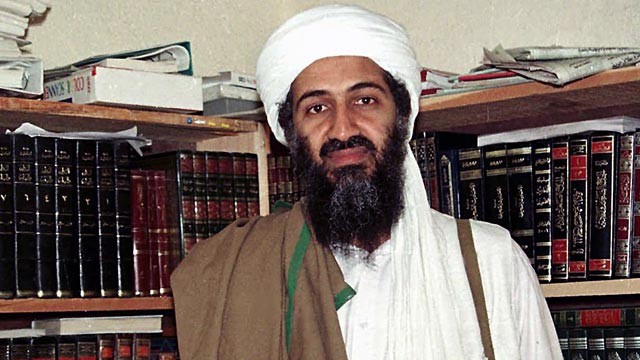
The Implications of Bin Laden’s Death for America
By:

The United States has made good on its promise to bring Osama Bin Laden to justice through brilliant intelligence work capped by a precise military operation. Only al-Qaeda or its sympathizers would disagree with the account so far, but at this point the world of opinion splits sharply between those who see the war against al-Qaeda as essentially finished and those, including the Obama Administration, who think that America’s “long war” must continue. A review of how al-Qaeda evolved after 9/11 provides strong indications that America has begun to win the war against al-Qaeda, but unfortunately the war is far from over.
Al-Qaeda’s Evolution After 9/11
Three to five years before 9/11, al-Qaeda’s leadership painstakingly planned not only the attacks of 9/11, but also an entire political military strategy to drive the United States out of the Middle East as an adjunct to overthrowing literally all of the Muslim leaders in the Middle East. The regional priority of this strategy for Bin Laden at least since 2003 has been the Arabian Peninsula, which contains the petroleum based key to America’s economic and military strength. The next priority is Pakistan with its large, fractious population and nuclear weapons. Iraq was an opportunity for recruitment once American forces invaded, but Bin Laden’s involvement was mainly rhetorical.
Al-Qaeda’s leadership and their closest advisors schooled themselves in American defense debates about fourth generation warfare and how to fight small wars. [1] They combed American strategic studies to find flaws in American power that they could exploit. But most of all, they studied the works of Mao translated into Arabic and read the strategists of the Cuban Revolution and the Vietnamese war against both the French and the Americans. [2] They also studied insurrections that did not work in the Middle East and elsewhere to avoid mistakes. They developed a political narrative based on their analysis of America’s role in the Middle East. Al-Qaeda’s leaders then crafted a jihadist narrative designed to appeal to a Muslim audience and clothed communist insurgency tactics and strategy in Islamic symbols to obscure its origins. The main lessons al-Qaeda derived from their insurgency studies is that political/ideological considerations should drive every act of violence and that time is on the side of the insurgent.
After America’s counterattack against al-Qaeda and its Taliban hosts in Afghanistan succeeded beyond all expectations in the months following 9/11, neither Osama Bin Laden nor his deputy Ayman al-Zawahiri expected to escape death at the hands of the United States or its allies for very long after their flight into Pakistan. They did not abandon their insurrectionist strategy, but they constructed a new international terrorist system to replace their previous hierarchical organization. By design, this new system did not depend on the leadership of one or two individuals. The new system was meant to outlive either man and carry on al-Qaeda’s jihadist project.
Al-Qaeda’s current system includes three interlocking terrorist circles. The first circle is the central core that contains the leadership and its closest advisors to provide political and ideological guidance (but not command and control). The second circle includes what one strategist referred to as “open fronts,” which Westerners sometimes refer to as affiliates. In al-Qaeda’s terms open fronts include regional guerrilla warfare but also recruiting, establishing, and training cells of the third circle. The third circle is what we sometimes refer to as “homegrown” or “sleeper cells.” [3] Sleeper cells so far have been rarely successful in the United States, but real threats are often disrupted. When third circle attacks are successful, however, as in the Madrid Train bombing in 2004, the London suicide bombings in 2005, or the Nidal Hasan shootings at Fort Hood in 2009, the results are dire.
What Comes Next?
Killing Osama Bin Laden should not be seen as the end of America’s international counterterrorism campaign, because the international system he set up is still active and will remain so for some time. Bin Laden’s death is definitely a heavy blow to the organization both in morale and ideological effectiveness. His death, however, will have no operational effect on Yemen, Pakistan, Afghanistan, Iraq, or North Africa because he did not control these organizations. We should expect all of these organizations to begin planning some sort of terrorist response. We should not expect them to work together on this effort, which will make their planning harder to detect. Cells outside the Middle East and South Asia could also be involved on an individual basis.
The central circle sometimes referred to as “al-Qaeda Central” will need to reestablish itself. Ayman al-Zawahiri will likely take up this role, but not as a replacement for Bin Laden; instead, the dead leader will remain as an iconic figure, a martyr, much as Sayyid Qutb became a powerful iconic figure to jihadists after his execution by the Egyptian Government in 1966. Other inspirational voices will emerge in the younger ranks, like Abu Yahya al-Libi, but we must wait to see whether a paramount leader will emerge as such.
Some have argued that affiliates expressed their formal allegiance (bay’ah) to Bin Laden and not to al-Qaeda, so his death should mean the break-up of the organization described above. This is not strictly accurate. [4] These pledges have taken a number of forms but are often a pledge to al-Qaeda while acknowledging Bin Laden as the leader. Others have argued that al-Zawahiri is a strident figure and not liked; on the other hand, he is respected as a leader who has paid his dues, which is probably what counts in the short run.
Finally, the death of Bin Laden should not influence American decisions about American troop deployments. The decisions to end our deployments in Iraq and Afghanistan have already been made; the only issue is timing. Many Americans want to end our deployments as soon as possible; others disagree. There are valid arguments to be made about costs of these deployments. The timing of pulling troops out of Iraq, however, should be based on agreements with Iraq and considerations of Iranian activities. Iraq is perfectly capable of attacking al-Qaeda within its own borders. Similarly, the decision on troop deployments in Afghanistan has had little to do with Bin Laden despite our stated goal of preventing an al-Qaeda return to Afghanistan.
The best weapon we have against terrorism and al-Qaeda is the continuity of a winning counterterrorism policy and a deliberate foreign policy upon which our allies can rely. For our own security, we need to continue to show al-Qaeda that they cannot wait us out.
Notes:
1. See Abu Ubayd al-Qurashi’s articles on in Al-Ansar online electronic journal: for example: “Fourth Generation Warfare” (in Arabic) al-Ansar, Number 2, January 28, 2002; also al-Qurashi’s “Revolutionary Wars” (in Arabic) available at https://www.tawhed.ws/r?i=kfjxiygb; the works of Abu Bakr Naji and Abu Mus’ab al-Suri also contain references to Mao, General Giap, Che Guevara, Regis Debray, and Fidel Castro as well as American sources.
2. References to studies on guerrilla warfare abound in the writings of al-Qaeda’s strategic thinkers and operators. For one example in which the author refers to Mao’s concept of the “war of the flea” without a citation to Mao see: Cigar, Norman, Al-Qa’ida’s Doctrine for Insurgency: ‘Abd Al-‘Aziz Al-Muqrin’s A Practical Course for Guerrilla War, 2009, Potomac Books, p. 92
3. See the translation of Abu Mus’ab al-Suri’s “The Relationship between Open Front Jihad and Individual Terrorism”4 in Lia, Brynjar. Architect of Global Jihad, 2009, Columbia University Press, pp. 436/7; al-Suri was writing this account as a recommendation but it appears to match how groups in Yemen and Pakistan relate to would-be terrorists in the United States.
4. For example, see Zarqawi’s pledge to al-Qaeda (in Arabic) at https://66.45.228.55/pr?i=6912 or Zawahiri’s characterization of the Algerian group (GSPC) pledge to al-Qaeda here https://www.archive.org/details/salafiaa–Z.




